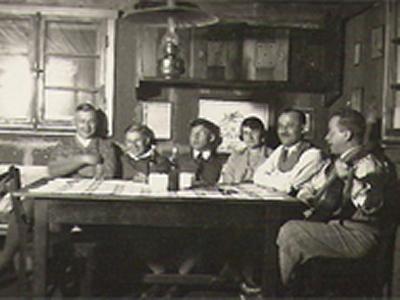Forgotten letters give new insights on Jewish migration

A chance discovery of forgotten letters in a garage in South Africa has led to a fascinating research project for historian Dr Shirli Gilbert.
The correspondence between a Jewish refugee and his friends and family in Germany and elsewhere dates back 70 years and gives a unique insight into contemporary life.
The box of 2,500 letters were found by Daniel Schwab, who coincidentally went to the same school as Shirli in Johannesburg. He is the grandson of the letter writer Ralph Schwab, a Jewish youth leader who escaped from the town of Hanau near Frankfurt after the Nazis came to power in 1933 and eventually settled in South Africa. Daniel got in touch with Shirli again through contacts at Johannesburg’s new Holocaust and Genocide Museum and asked her if she was interested in working on the collection.
“It’s a fascinating project with so many different aspects,” says Shirli. “Our first job is to translate the letters which are all written in German. We have many documents as Ralph kept carbon copies of everything he wrote, along with all the letters he received. I am sure they will add greatly to our understanding of life in both Nazi Germany and South Africa in the middle of the last century.”
Ralph, then known as Rudi, was encouraged to get out of Germany by his good friend Karl Kipfer who was a Nazi party member. They continued to write to each other for many years. His parents Max and Martha remained in Hanau and were later killed in concentration camps, along with many other family members. Ralph himself died in a road accident in 1971.
“We have only translated a small fraction of the letters; much remains to be known about Ralph’s correspondence,” says Shirli. “We expect to learn much more about his relationship with his Nazi friend and first-hand accounts of Jewish migration around the world. It will also be interesting to hear his thoughts about South Africa as the country introduced apartheid.”
This research project on Holocaust memory in South Africa has been awarded a grant of approximately £9,000 from the Kaplan Kushlick Foundation in South Africa to contribute towards the cost of translating and cataloguing the letters.